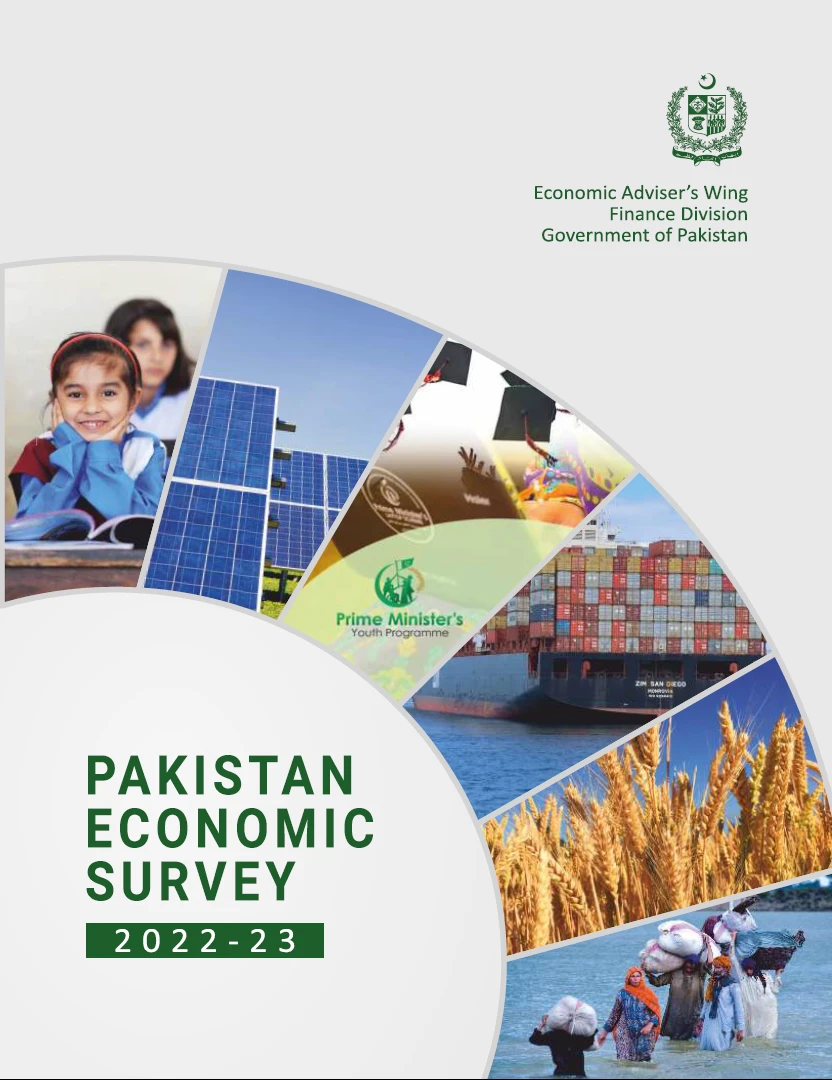By Staff Reporter
ISLAMABAD: Pakistan’s economy suffered through a dismal year in 2022-23, with all its macroeconomic targets falling short of expectations due to a stalled International Monetary Fund (IMF) program, restricted imports, severe floods, and political turmoil.
The Economic Survey 2022-23, released on Thursday, showed that the economy grew by just 0.29 percent in the fiscal year that ended June 30, well below the government’s target of 5.0 percent. Inflation, meanwhile, averaged 18.0 percent, more than double the government’s target of 8.5 percent.
The per capita income in dollar terms fell by 11.3 percent to $1,568 in 2023 from $1,765 in 2022, while the size of the economy shrank to $341 billion from $375 billion a year earlier.
The government blamed the poor economic performance on a number of factors, including the Covid-19 pandemic, supply chain disruptions, global commodity price hikes, and political uncertainty.
The survey also noted that the economy was hit hard by the floods that struck Pakistan in July and August last year. The floods caused an estimated $1.85 billion in damage and affected 5.4 million people.
It also said the external sector remained under pressure as exports declined by 4.4 percent to $21.3 billion and imports increased by 26.7 percent to $56.4 billion, resulting in a trade deficit of $35.1 billion.
The current account deficit widened to $10.9 billion or 3.2 percent of GDP from $4.4 billion or 1.2 percent of GDP in 2022.
The survey said the fiscal deficit was estimated at 8.1 percent of GDP, higher than the target of 7.0 percent, while the public debt rose to 90.6 percent of GDP from 87.6 percent a year earlier.
It said the investment-to-GDP ratio fell to 13.8 percent from 15.4 percent, while the savings-to-GDP ratio dropped to 10.6 percent from 14.2 percent.
Finance Minister Ishaq Dar called the outgoing year “a difficult year for the economy,” saying the coalition government faced “extreme challenges” when it came to power in April 2022.
Though he mostly blamed the previous government, who was voted out by the parliament in April last year, for the dismal economic performance and said his government inherited a “mess”.
“Pakistan has paid a huge political cost of meeting IMF reforms … the structural reforms, the power reforms, gas reforms, the fiscal reforms … we had to do the pending actions,” Dar told a news conference in Islamabad.
“For Pakistan, this political cost was worth it … The revival of this [IMF] program was important because of Pakistan’s credibility.”
Dar said he was hopeful the 9th review of the program would be concluded soon.
He said it would be unfair and undemocratic for his administration to negotiate a new deal with the IMF, whose $6.7 billion programme for Pakistan has been suspended since November 2022.
“After the elections, whoever wins should talk to the IMF for a new programme,” the minister told a news conference in Islamabad.
He said he had a “Plan B” to avoid default if the IMF did not resume its support and claimed that Pakistan had trillions of dollars’ worth of assets in minerals and agriculture.
“The first priority is to pay off sovereign debts, then food and pharmaceutical imports,” Dar said, adding that the government had repaid $6.5 billion in international commercial loans, with $1.0 billion of that amount being in the form of international Sukuk.
Looking ahead, the finance minister set a GDP target of 3.5 percent, emphasizing that incentives for agriculture, industry, and IT exports would be announced in the budget for the upcoming fiscal year.
Copyright © 2021 Independent Pakistan | All rights reserved




